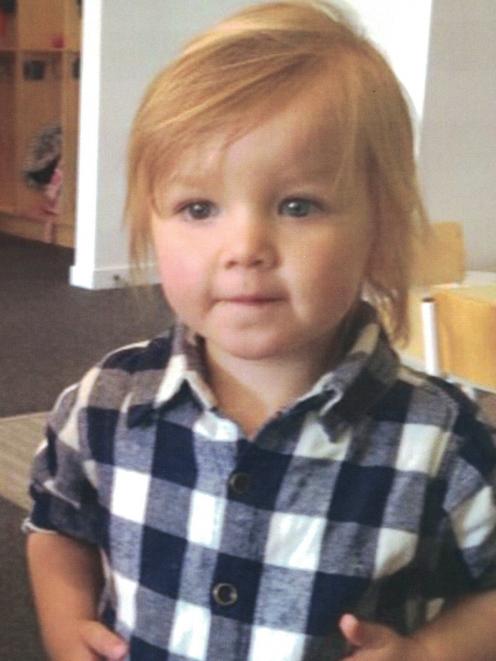
The expert phase of Coroner Alexander Ho’s inquest into the 3-year-old’s death began in Invercargill yesterday.
In 2019, Lachie was found 1.2km from his Gore home, face up in an oxidation pond.
Police quickly concluded the boy had drowned, but later confessed they "missed some steps" in the investigation.
Lachie’s father Paul Jones never believed his son drowned and called the investigation a "bloody botched up police job".
Yesterday, forensic pathologist Dr Martin Sage, who has more than 33 years’ experience, said a full postmortem should be performed on any body that was found in water, but only a general lesser postmortem was completed on Lachie.
"In this case, which requires a thorough exclusion of other potential causes of death not visible externally, the operating pathologist has done an adequate job as far as it goes but has stopped too soon.
"The failure to complete a full autopsy is one of the reasons why we’re here today."

Because Lachie’s head was not examined, other causes of death such as suffocation or a brain bleed could not be ruled out, although they were unlikely in the circumstances.
Dr Sage accepted Lachie’s face-up position and the lack of water in his lungs was "unusual" for a drowning, but it was still the most likely cause of death.
"It’s fortunate when you see a case where all of the ducks are in a row in terms of diagnosis, but this is uncommon."
The pathologist, who has name suppression, said Lachie’s lungs were lighter than average because a "dry drowning" — where water never reaches the lungs — could have occurred.
Dr Sage said that was unlikely and instead water might have been moved from Lachie’s lungs during resuscitation attempts.
The witness also rejected the theory that Lachie’s body had been placed in a freezer.
"In my view the allegation of prior death and freezing before immersion in the pond is without any identifiable factual basis."
Dr Sage concluded that the cause of death was "unascertained" because of issues with the investigation but, on the balance of probabilities, Lachie most likely drowned.
Earlier in the day, the inquest heard from an expert in police dog handling who said it was not unusual for Lachie’s scent to be picked up only 30m away.
Inspector Todd Southall said Constable Lachlan MacDonald and his police dog Gee "made the right call" on January 29, 2019.
He explained many factors on the night such as heat, scene contamination and the time between Lachie disappearing and the dog arriving meant a scent trail would have been difficult to track.
Because Lachie was a small boy, he would leave a weaker scent trail than a heavier adult.
"The dog is a dog; the dog does not understand that he is there looking for a 3-year-old child that’s gone missing.
"The decision he made around not casting at the beginning because of the large amount of people was the right decision because he wouldn’t have achieved anything."
Gee was unable to find a ground scent, but picked up an airborne scent closer to Lachie, which was what he would expect.
"Had there been any [ground] scent there, and it was available, the dog would’ve picked that up."
This phase is expected to hear from experts in forensic pathology, child behaviour and dog handling.
Lachie’s half-brother Johnathan Scott is expected to be recalled in the coming weeks.
The first part of the hearing heard from the boy’s family, witnesses and police involved in the investigation.
The inquest will continue today and another forensic expert and an investigator are expected to give evidence.
felicity.dear@odt.co.nz , PIJF court reporter











